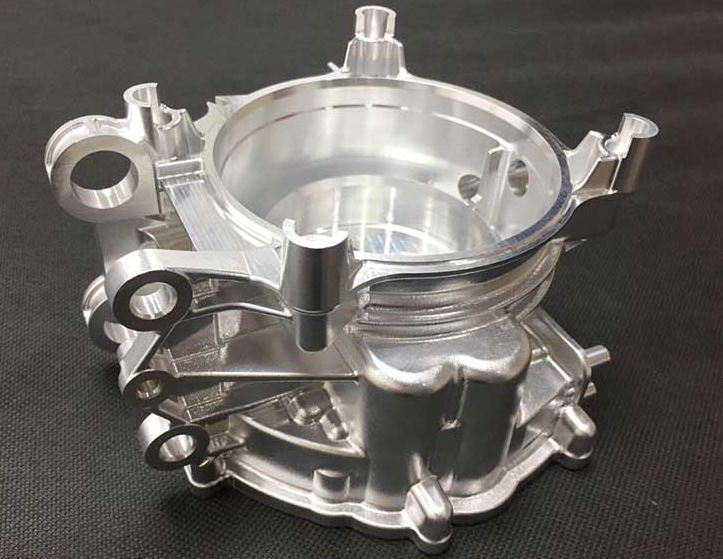An Unbiased View of Stahl Specialty Company
An Unbiased View of Stahl Specialty Company
Blog Article
Stahl Specialty Company for Beginners
Table of Contents8 Easy Facts About Stahl Specialty Company ShownStahl Specialty Company - The FactsThe Ultimate Guide To Stahl Specialty CompanySome Known Details About Stahl Specialty Company Fascination About Stahl Specialty Company
The refined difference exists in the chemical material. Chemical Contrast of Cast Light weight aluminum Alloys Silicon advertises castability by decreasing the alloy's melting temperature level and enhancing fluidness throughout spreading. It plays an essential role in enabling elaborate mold and mildews to be filled accurately. In addition, silicon adds to the alloy's stamina and wear resistance, making it valuable in applications where durability is important, such as auto parts and engine elements.It additionally improves the machinability of the alloy, making it simpler to process right into completed items. This way, iron adds to the overall workability of aluminum alloys. Copper raises electric conductivity, making it advantageous in electric applications. It additionally boosts corrosion resistance and contributes to the alloy's general stamina.
Manganese contributes to the strength of aluminum alloys and enhances workability. It is commonly utilized in functioned light weight aluminum products like sheets, extrusions, and profiles. The existence of manganese help in the alloy's formability and resistance to fracturing throughout construction processes. Magnesium is a light-weight aspect that supplies strength and impact resistance to light weight aluminum alloys.
It enables the production of lightweight elements with exceptional mechanical residential properties. Zinc enhances the castability of light weight aluminum alloys and aids control the solidification process throughout casting. It enhances the alloy's strength and firmness. It is frequently found in applications where elaborate shapes and great details are required, such as attractive castings and specific automobile components.
Examine This Report on Stahl Specialty Company
Due to the fact that aluminum-silicon alloys have great casting residential or commercial properties, high gas properties, straightforward processes, and outstanding deterioration resistance, aluminum-silicon alloys are most frequently utilized in the die-casting market in your home and abroad. At the exact same time, aluminum-silicon alloys are also fairly early and commonly identified alloys created and used in die-casting. After constant research study and improvement, the majority of the present international mainstream aluminum-silicon alloys have been completed and are nothing greater than A356, A360, A380, ADC12, B390, and A413.
The main thermal conductivity, tensile toughness, yield stamina, and elongation differ. Select suitable raw products according to the performance of the target item produced. Amongst the above alloys, A356 has the highest possible thermal conductivity, and A380 and ADC12 have the most affordable. The tensile restriction is the opposite. A360 has the most effective yield stamina and the highest possible elongation rate.

Stahl Specialty Company Fundamentals Explained
In precision casting, 6063 is well-suited for applications where detailed geometries and high-grade surface coatings are paramount. Examples consist of telecommunication units, where the alloy's remarkable formability permits sleek and cosmetically pleasing designs while keeping structural integrity. Similarly, in the Lights Solutions market, precision-cast 6063 parts develop classy and effective illumination components that need complex forms and great thermal performance.
(https://allmyfaves.com/stahlspecialc?tab=Stahl%20Specialty%20Company)
The A360 shows premium prolongation, making it optimal for complex and thin-walled components. In precision casting applications, A360 is well-suited for sectors such as Consumer Electronic Devices, Telecommunication, and Power Tools.

In precision casting, aluminum 413 shines in the Customer Electronics and Power Equipment industries. This alloy's premium rust resistance makes it an outstanding choice for outside applications, making sure durable, long lasting items in the discussed industries.
The Stahl Specialty Company Diaries
Once you have actually decided that the light weight aluminum pass away casting procedure appropriates for your task, a crucial next action is deciding on one of the most proper alloy. The aluminum alloy you select will considerably influence both the spreading procedure and the residential properties of the last product. Due to this, you have to make your choice very carefully and take an informed strategy.
Establishing one of the most ideal aluminum alloy for your application will certainly imply evaluating a broad array of characteristics. These comparative alloy characteristics adhere to the North American Die Casting Organization's guidelines, and we have actually separated them right into two groups. Aluminum Castings. The first group addresses alloy qualities that influence the manufacturing process. The second covers characteristics influencing the residential or commercial properties of the end product.
The alloy you pick for die spreading directly influences several aspects of the casting procedure, like how very easy the alloy is to function with and if it is vulnerable to casting issues. Warm cracking, likewise referred to as solidification breaking, is a normal die casting defect for aluminum alloys that can lead to internal or surface-level rips or splits.
The 2-Minute Rule for Stahl Specialty Company
Particular aluminum alloys are extra prone to warm breaking than others, and your selection needs to consider this. An additional usual flaw located in the die casting of light weight aluminum is die soldering, which is when the cast adheres to the die wall surfaces and makes ejection difficult. It can damage both the actors and the die, so you need to try to find alloys with high anti-soldering properties.
Corrosion resistance, which is currently a significant attribute of light weight aluminum, can vary significantly from alloy to alloy and is an essential characteristic to take into consideration depending on the ecological problems your item will be exposed to. Put on resistance is one more home generally looked anonymous for in light weight aluminum items and can distinguish some alloys.
Report this page